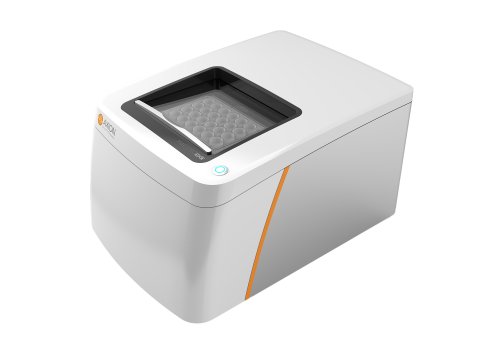Authors: Thiry L, Clément JP, Haag R, Kennedy TE, and Stifani S.
ASN Neuro, 2022.
Scientists use the Maestro MEA platform to examine hiPSC-derived motor neurons in dPGA in vitro.
Human induced pluripotent stem cell (hiPSC)-derived motor neurons are helping advance research and therapeutic discovery for a variety of neurodegenerative disorders including spinal muscular atrophy and amyotrophic lateral sclerosis, but robust long-term culture conditions are essential for generating biologically relevant motor neuron models able to recapitulate differentiation, maturation, aging, and death. In this study, scientists use Axion’s Maestro multielectrode array (MEA) platform and other testing methods to investigate the use of dendritic polyglycerol amine (dPGA) reagent as a new coating substrate in hiPSC-derived motor neuron cultures.
The findings from MEA and other methods demonstrate that dPGA provides “improved conditions for long-term cultures of human iPSC-derived motor neurons, thus allowing evaluation of cell viability, molecular identity, spontaneous electrophysiological activity, and single-cell RNA sequencing of mature motor neurons.” Overall, the authors suggest that these results may facilitate the creation of better model systems for the study of neurodegeneration and accelerate the discovery of new therapeutic targets.


